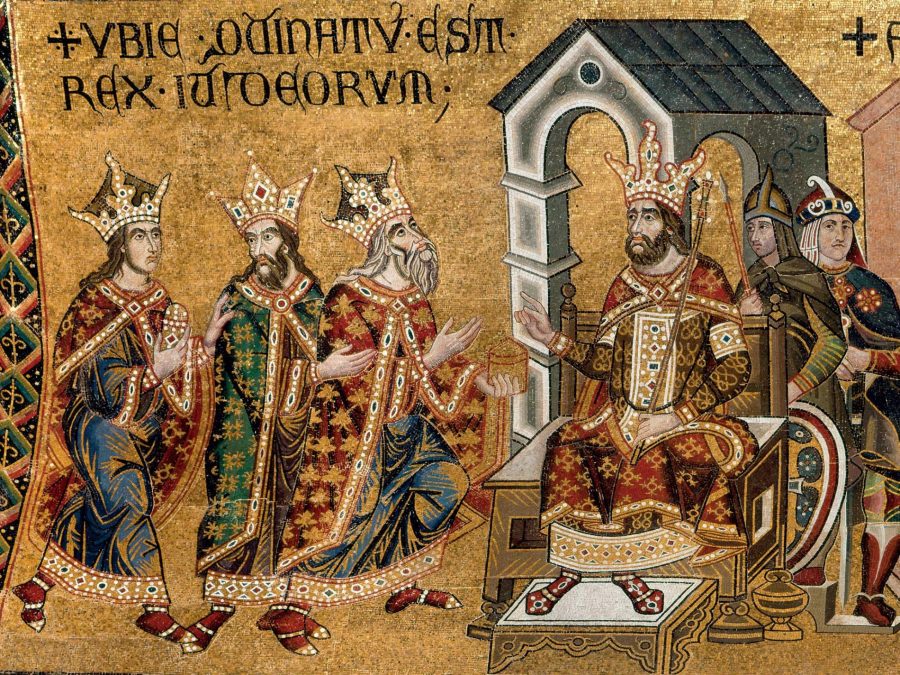REV. JOSÉ MARIO O. MANDIA
jmom.honlam.org
“Wise men from the East came to Jerusalem, saying, ‘Where is he who has been born king of the Jews? For we have seen his star in the East, and have come to worship him.’” (Matthew 2:1)
The Wise Men knew something important: they knew that they did not know everything. Socrates taught: “The only true wisdom is in knowing you know nothing.” This is why the wise men asked for directions. They practiced the virtue of prudence.
What is prudence? Prudence is one of the four cardinal virtues (the other three being justice, fortitude and temperance). It basically means good judgment. TheCatechism of the Catholic Church (no. 1806) teaches: “Prudence is the virtue that disposes practical reason to discern our true good in every circumstance and to choose the right means of achieving it; ‘the prudent man looks where he is going’ (Proverbs 14:15).” What is “our true good”? Our true good is happiness that lasts. As we have seen a few weeks ago, that happiness-that-lasts is called “heaven”.
The Catechism adds that prudence “is called auriga virtutum (the charioteer of the virtues); it guides the other virtues by setting rule and measure. It is prudence that immediately guides the judgment of conscience. The prudent man determines and directs his conduct in accordance with this judgment. With the help of this virtue we apply moral principles to particular cases without error and overcome doubts about the good to achieve and the evil to avoid.”
The first thing that a prudent man does is to inform himself about the options open to him. He does not rush into decisions. He does not base his actions on feelings or intuition alone. Prudence is an important requirement for exercising our freedom. As we have seen some weeks back, an irrational choice could be an unwise choice. But we have defined freedom as intelligent choice, that is why we need prudence.
FIRST STEP: ASK. To inform ourselves, we need to study. We need to ask questions. On March 21, 2007, Pope Benedict addressed a delegation from the Theology Faculty of a German University (Tubingen) and he told them: “To be a theologian and to carry out this service for the University, and I dare to say for humanity – hence, the service that is expected of him -, he must go further and ask: but is what is said there true? And if it is true, does it concern us? And how does it concern us? And how can we recognize that it is true and concerns us?”
He added: “Only if we ask, and if with our questions we are radical, as radical as theology must be radical over and above any specialization, can we hope to obtain answers to these fundamental questions which concern us all. … First of all, we have to ask questions. Those who do not ask do not get a reply.”
Socrates once said, “Wisdom begins with wonder.” When we wonder, we ask. When we ask, we become wiser.
NEXT STEP: LISTEN. Pope Benedict said further: “But I would add that for theology, in addition to the courage to ask, we also need the humility to listen to the answers that the Christian faith gives us; the humility to perceive in these answers their reasonableness and thus to make them newly accessible to our time and to ourselves.”
The Wise Men were humble enough to listen to the experts of the law. That is how they found the star again.
We have to learn to listen to other people, but above all, we have to learn to listen to God. A person who does not pray cannot be a prudent person, because he has not yet heard the voice of the One who knows everything.
THIRD STEP: ACT. The Wise Men acted on the information they received. Contrast that with the attitude of the Scripture experts. They knew where Jesus was going to be born but did nothing about it. How unwise. How foolish. How … (Alas! Prudence tells me not to say unkind words.)
Most often, people think prudence is the same thing as caution, passivity, or inaction. No, no, no and no again. “Prudence is ‘right reason in action,’ writes St Thomas Aquinas (Summa Theologiae II-II, q47, a2), following Aristotle. It is not to be confused with timidity or fear, nor with duplicity or dissimulation.” (Catechism of the Catholic Church, 1806)
Prudence is the virtue that Pope Francis spoke about in his homily for Epiphany last year, though he used another word for it: “spiritual cunning”. He said, “We need to welcome the light of God into our hearts and, at the same time, to cultivate that spiritual cunning which is able to combine simplicity with astuteness, as Jesus told his disciples: ‘Be wise as serpents and innocent as doves’ (Matthew 10:16).’”
(O Clarim, 9 January 2015)


 Follow
Follow


